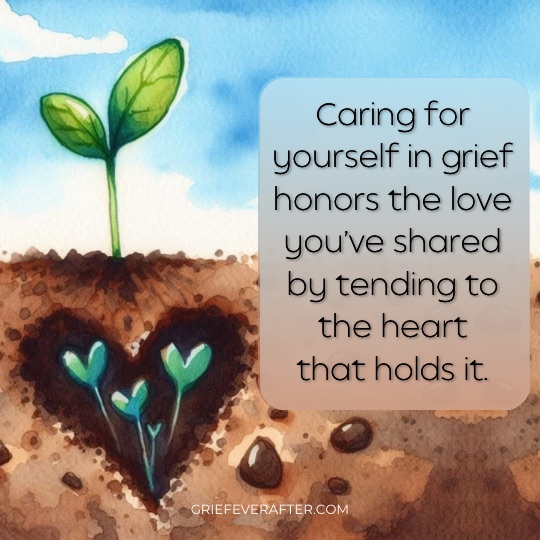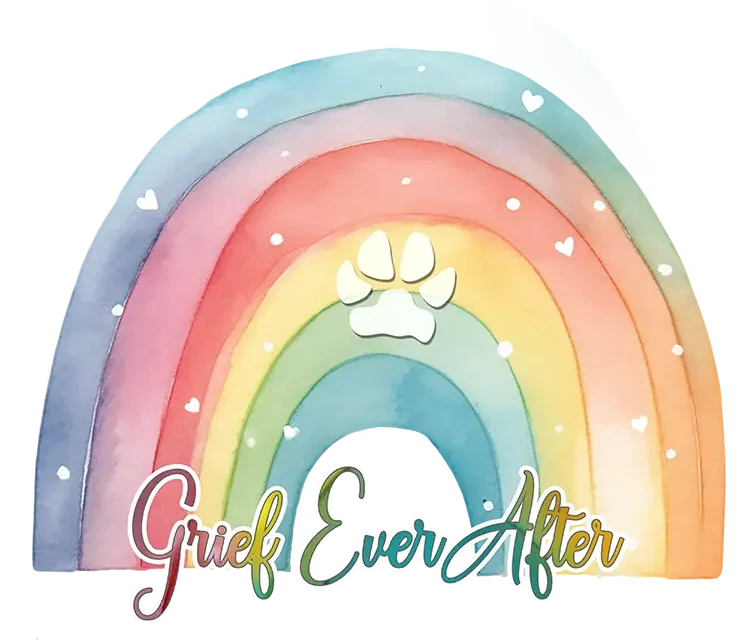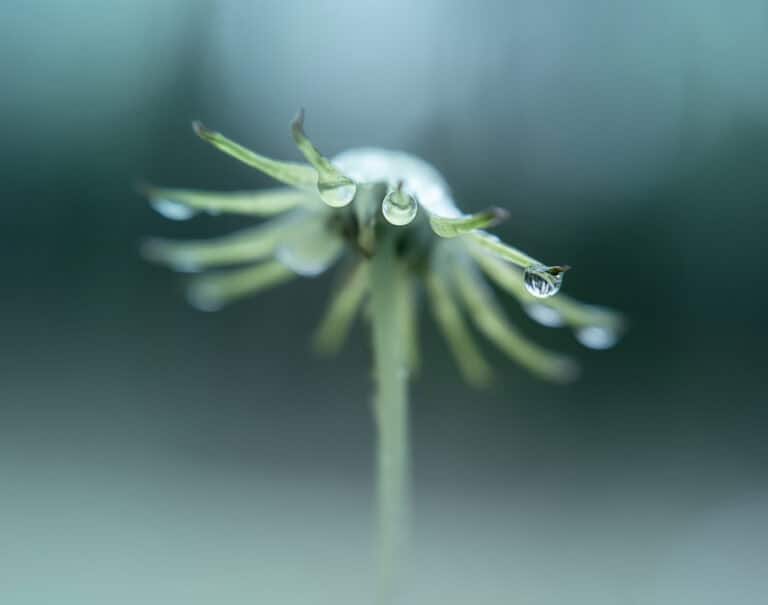Wellness and Self-Care After Pet Loss
Often self-care after pet loss needs to be seen through a new and different lens — a deeper, more spiritual, holistic one. Self-care isn’t just about physical and emotional wellness, it is also heart-care and soul-care. While grieving, this becomes a crucial, non-negotiable part of your survival kit. After all, who else will ensure that future you has been properly cared for?
But there’s no universal prescription for grief self-care — like nearly everything in grief, it’s deeply personal and may be ever-changing.
What matters most is giving yourself permission to prioritize you. Recognize that nothing is too insignificant and self-care is not selfish. Intentional acts, big or small, are not just about getting through the day, but also about planting seeds for healing, even when that feels distant.
Sometimes seeds take a while to bloom.
Redefining Self-Care After Pet Loss
Have you ever thought about what your self-care looked like before? What used to replenish you and fill up your cup after a long day, a strenuous task, or a particularly trying time in life? Your pet. Pets are built-in, organic self-care. We don’t have to actively fill up our proverbial cup, because they do it. Sometimes even in just a few hours a night, they revitalize your spirit enough to do it all again the next day.
After pet loss, your effortless, natural self-care is missing — at a time when caring for yourself becomes critical. It’s such a terrible irony of losing a beloved fur, feathered, or scaled family member.
The term “self-care” often comes with a connotation of indulgence—bubble baths, spa days, or doing something out of the ordinary. But while grieving, self-care takes on a different purpose. It’s not about luxury; it’s about the necessity of wellness.
It can be as simple as eating a nourishing meal, drinking a glass of water, taking a nap, stepping outside for fresh air or sun, or allowing yourself a reprieve from grief without feeling guilty.
It’s less about escaping pain and more about supporting yourself through it, exploring restorative practices that feel good. Or that at least feel better than bad. Not to squash the tough emotions of grief, but to protect and care for the vessel that carries it all.
While tending to your body and mind’s needs, you deserve the same care and compassion you’ve always given your pet. Some days are easier than others. Some seasons are easier than others. But putting self-care on your daily to-do list can help you remember its importance even on days when motivation is low.
Finding What Works for You — 10 Ideas
Your self-care toolbox doesn’t have to be overflowing. You might have just a few things you lean into and rely on regularly. While keeping an open mind, you may find new ideas that feel comforting and can grow your go-to list, so that it’s easier to find what fills up your cup.
Not everything on this list will resonate with you, and that’s okay. But it might help you discover or refine what truly feels comforting to you.
A Nighttime Wind-Down Routine – Nights are hard. Creating a calming routine before bedtime to ease your mind and body into rest can help to get rejuvenative sleep. This might include a hot shower, turning devices off at a certain time, reading, and lighting candles (battery operated candles at bedtime, ideally.)
Sensory Comfort – Pets touch every part of your senses, and in grief, finding comfort through those same senses can be comforting. Wrap up in a soft blanket, use a scented diffuser, listen to calming music, or watch a sunset—anything that gently soothes your senses.
Creativity – Express your emotions through writing, painting, crafting, doodling, or any creative outlet. Even if you don’t see yourself as a creative person, give it a shot. Creativity engages multiple parts of the brain, making it a very useful tool for processing sadness and grief.
Nature’s Healing – Spend time outdoors, whether it’s a walk, sitting in the sun, or simply opening a window for fresh air. Nature has a way of holding grief gently, and you may find your thin spaces—where the barrier between you and your beloved pet feels thin, allowing their presence to truly be felt.
Gentle Movement – Stretching, yoga, or even a short walk to release tension without pressure.
Mindful Hydration – Make drinking water a requirement throughout the day. Maybe even add lemon or a flavor to help make it more palatable, if that helps.
Comforting Meals – If cooking and eating full meals feels too hard, make it simple—warm soup, a favorite childhood or comfort dish (mac & cheese), or easy nutritious ready-to-eat items.
Small Acts of Honoring – Light a remembrance lamp for your pet, place fresh flowers by their photo, or carry a touchstone that reminds you of them.
Journaling Without Rules – Write a letter to your pet, jot down memories, or simply scribble your emotions. No rules.
Be Unproductive Without Guilt – Allow yourself to sleep in, binge watch a show, use your PTO, or simply take breaks without feeling like you should be doing more.

Self-Care Stumbling Blocks
Even though caring for your own well-being might seem like it should be second nature, self-care after pet loss can feel anything but. Grief is physically, emotionally, and mentally exhausting. The simplest acts of self-care can feel overwhelming or unimportant.
When your beloved pet, whom you devoted so much love and care to, is no longer physically there, shifting that care inward can feel unnatural or undeserved.
Even with the best intentions, self-care in grief isn’t always easy. You may find yourself struggling with certain barriers—some that are common and some that are deeply personal.
Feeling Guilty – The mind can be a tricky thing. Maybe you start believing that you don’t deserve self-care with your pet not here. Or you feel like prioritizing yourself is selfish and means you might start forgetting or are “moving on”.
Feeling Like You Can’t (or don’t want to) Do Anything – Grief can drain motivation, making self-care feel unappealing or pointless. Starting small, with something that feels doable is a great start.
Believing Self-Care Has to Be Grand – Assuming self-care means elaborately treating yourself instead of seeing it as small, meaningful acts of restoration.
Overwhelm & Decision Fatigue – Struggling to choose what might help when everything feels exhausting. Analysis paralysis, as an old friend would always say. This is normal. When every choice feels like too much, start small and your self-care confidence will begin to build.
Minimizing Your Needs – Thinking that others “have it worse” or you should be handling grief better, doesn’t serve anyone, including yourself. It might feel like you’re supposed to have a buck up mentality in life, but I don’t think that applies in grief. A gentle mentality is far more compassionate.
One way to contend with obstacles in your mind is to simply acknowledge them. When you acknowledge your inner “tough-on-yourself” voice, you may start to see it as separate from the real you. The you that deserves extra care while you grieve and mourn.
Grief is a long, unpredictable, often dark road. On that road, self-care requires effort, gentle reminders, and intentional choices for momentum. It may not bring instant relief, and on the hardest days, it might not feel like it’s helping at all. But over time, small acts of care become little lifelines in grief.






